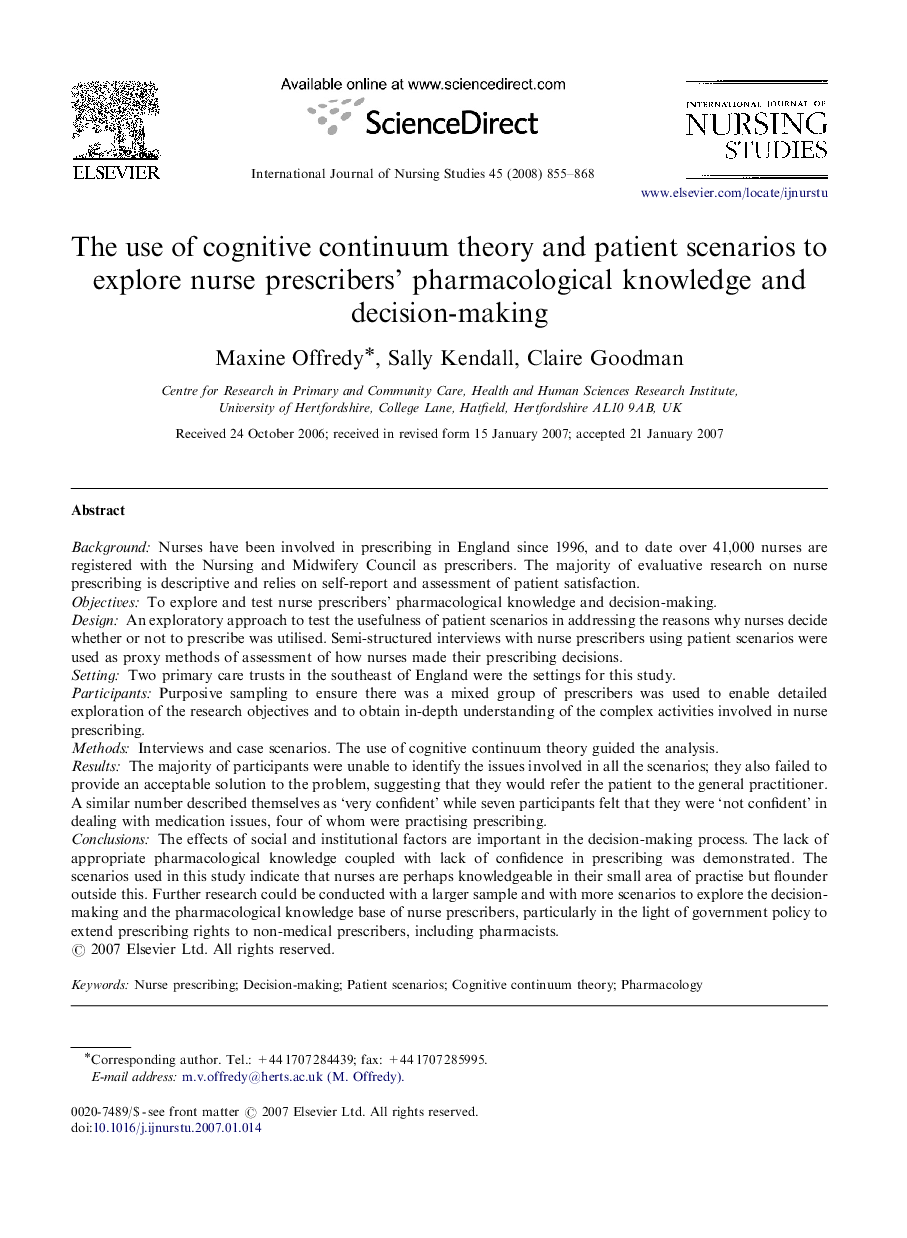| کد مقاله | کد نشریه | سال انتشار | مقاله انگلیسی | نسخه تمام متن |
|---|---|---|---|---|
| 1077811 | 1486607 | 2008 | 14 صفحه PDF | دانلود رایگان |

BackgroundNurses have been involved in prescribing in England since 1996, and to date over 41,000 nurses are registered with the Nursing and Midwifery Council as prescribers. The majority of evaluative research on nurse prescribing is descriptive and relies on self-report and assessment of patient satisfaction.ObjectivesTo explore and test nurse prescribers’ pharmacological knowledge and decision-making.DesignAn exploratory approach to test the usefulness of patient scenarios in addressing the reasons why nurses decide whether or not to prescribe was utilised. Semi-structured interviews with nurse prescribers using patient scenarios were used as proxy methods of assessment of how nurses made their prescribing decisions.SettingTwo primary care trusts in the southeast of England were the settings for this study.ParticipantsPurposive sampling to ensure there was a mixed group of prescribers was used to enable detailed exploration of the research objectives and to obtain in-depth understanding of the complex activities involved in nurse prescribing.MethodsInterviews and case scenarios. The use of cognitive continuum theory guided the analysis.ResultsThe majority of participants were unable to identify the issues involved in all the scenarios; they also failed to provide an acceptable solution to the problem, suggesting that they would refer the patient to the general practitioner. A similar number described themselves as ‘very confident’ while seven participants felt that they were ‘not confident’ in dealing with medication issues, four of whom were practising prescribing.ConclusionsThe effects of social and institutional factors are important in the decision-making process. The lack of appropriate pharmacological knowledge coupled with lack of confidence in prescribing was demonstrated. The scenarios used in this study indicate that nurses are perhaps knowledgeable in their small area of practise but flounder outside this. Further research could be conducted with a larger sample and with more scenarios to explore the decision-making and the pharmacological knowledge base of nurse prescribers, particularly in the light of government policy to extend prescribing rights to non-medical prescribers, including pharmacists.
Journal: International Journal of Nursing Studies - Volume 45, Issue 6, June 2008, Pages 855–868